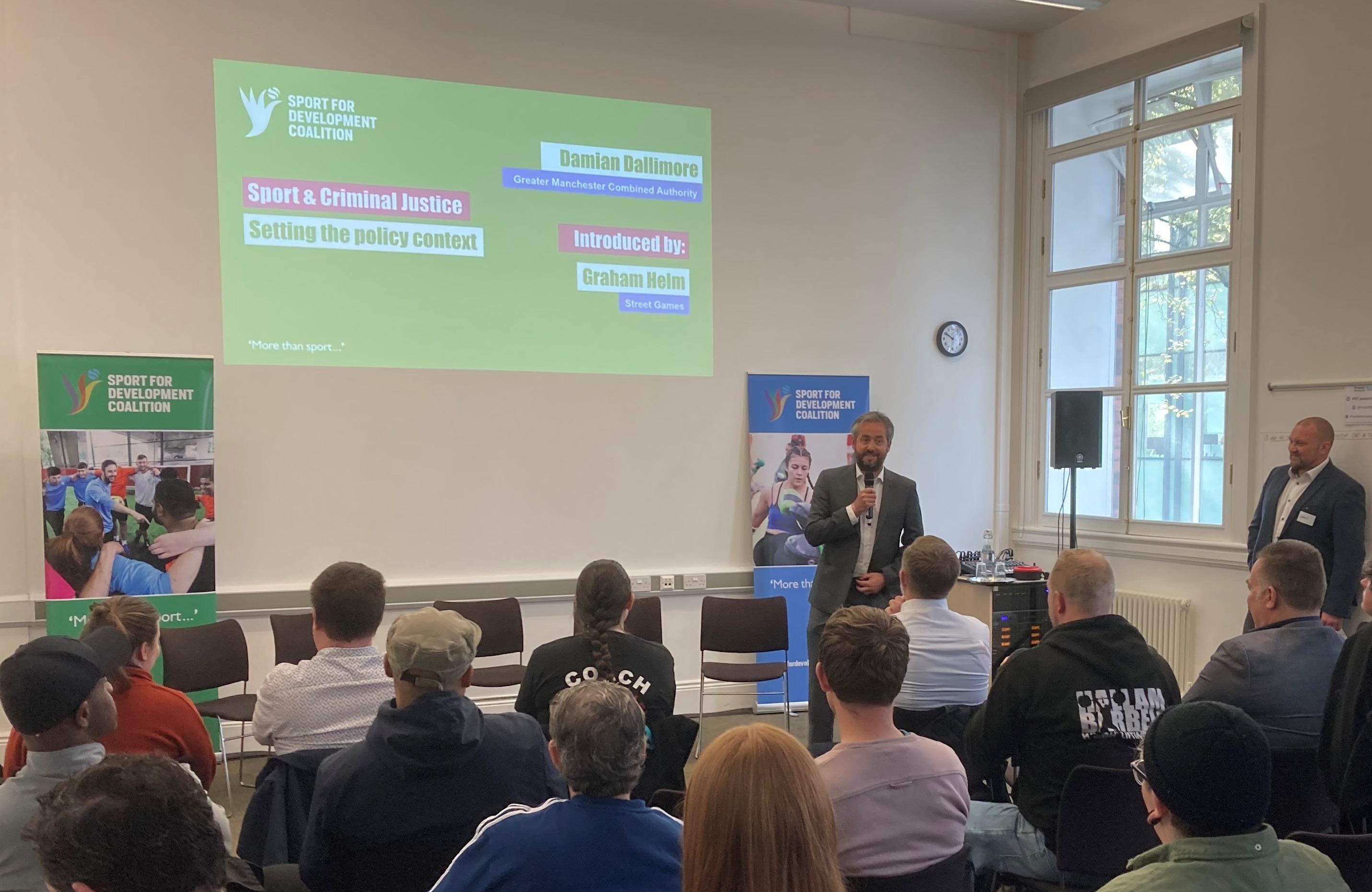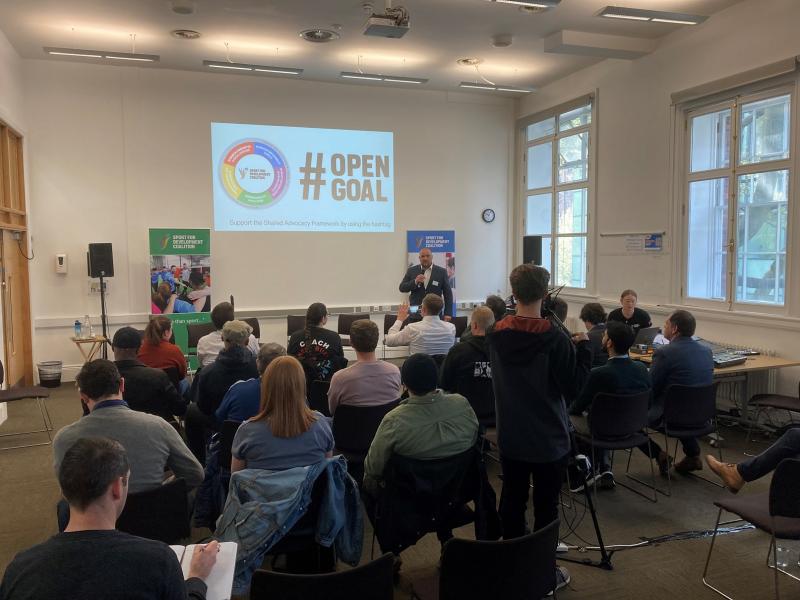The Sport for Development Coalition’s collective role in preventing and reducing crime and anti-social behaviour has been welcomed by the head of Greater Manchester’s violence reduction unit.
Damian Dallimore, Head of Serious Youth Violence & Organised Crime for Greater Manchester Combined Authority (GMCA), was speaking at the Coalition’s latest ‘Town Hall’ session which took place in the city and focused on sport and criminal justice.
The fourth Town Hall was hosted by StreetGames and the Alliance of Sport in Criminal Justice and featured more than 60 colleagues online and in person from across the Coalition network. In his opening remarks, Alliance CEO James Mapstone described how reducing crime and anti-social behaviour is one of the five health and societal inequalities underpinning the Coalition’s ‘Open Goal’ advocacy framework.
Keynote speaker Damian subsequently emphasised the role that community sport is helping to play in engaging communities facing the greatest challenges.
“We know the root cause of violence is often poverty, inequality, lack of opportunity, lack of social mobility – we know these things to be true,” he said. “You will have seen the sign outside the front of this building that talks about austerity, and how it has impacted the poor more than anyone else. We have a cost-of-living crisis at the moment. People are struggling to heat their homes and feed their families.
“Problems are only going to get worse unless we can deal with the root causes of these issues. Community sport is such an important cog in all of that, because that’s the way we will get engagement, and that’s the way we will change lives by providing opportunity to the people that most need it.”
IMPORTANCE
The sport for development sector has a key role to play in helping to ensure “the interventions that are delivered at the end are fit for purpose”.
Damian (pictured below) said: “I genuinely appreciate the importance of the voluntary sector in communities, and of sport, in helping us achieve our objectives.”
He added: “Andy Burnham, our Mayor, made a very public commitment that we would be community-led. This means in the areas where we feel there is a real issue with violence we will have conversations with all of the residents, including young people and people who work in those communities, to say first and foremost what is great about where you live? Tell us the good things. Then tell us the things you would like to see change, and work with us – with a budget – to decide what that investment looks like in these areas.

“Doing that is not tokenistic; what it does is bring that community with us on the journey.”
From a practitioner perspective, attendees then heard from Stuart Long, the CEO of Achieve, Thrive, Flourish which is a charity based in Essex and follows an asset or strengths-based approach to preventing crime and anti-social behaviour.
“The assets are our coaches and youth workers, and we have a mixture of those within the communities but also those with lived experience who have managed to turn their lives around,” he explained.
EXPERIENCES
“While we might not be explicitly stating that our work is around trying to prevent crime, we have someone who had a custodial sentence with experience of ‘county lines’, someone who was youth offending, we have a prison officer – so we can build trust with young people day by day so then when we have established that relationship, at the right time we can expand and share their experiences. By that time, hopefully, young people buy into what we are doing. We are trying to create positive role models and build an alternative to county lines and gang culture.”
Following the open keynotes, a panel of leaders from both policy and practice came together to discuss some of the opportunities and challenges involved using sport for development as a tool in preventing youth crime. The panel was facilitated by Graham Helm, National Partnerships Manager – Safer, StreetGames and featured contributors from Warrington Live Wire, Elite Boxing Bolton, GMCA, StreetGames and University of Bath.
This included powerful testimony from Chantelle Nice, Community Engagement Officer for Elite Boxing Bolton (below), who spoke about how preventative work takes time and depends on building genuine trust with local people. “Making sure we are there for the children every week is my priority,” she said.

In the second half of the Town Hall, attendees came together to discuss areas for collective action. Online and in-person attendees discussed and answered a series of questions focused on the understanding the key ingredients of effective sport-based programmes in this field, on workforce and monitoring and evaluation.
The inputs generated throughout the Town Hall event will be used to inform collective action on reducing crime and anti-social behaviour as a part of the Coalition's Open Goal advocacy framework. Read further comments, insights and resources from the event.
Town Halls are designed to provide informal opportunities for a selection of the 200-plus organisations and networks who make up the Coalition to engage on important issues in the sector and drive the Coalition’s collective response to them.
Watch previous Town Halls:
- February 2022: Recruiting the sport for development workforce
- September 2021: Social prescribing and Integrated Care Systems
- November 2021: Sport for development and the climate emergency



